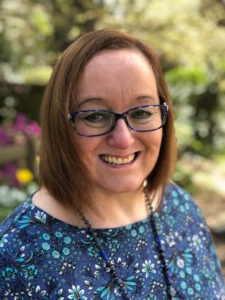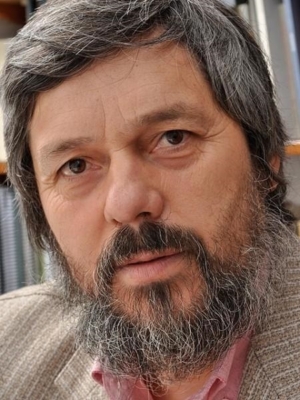It is always raining in our memory/ Untitled/ The Island Drank Up All the Air/ The Sunset
[translated poetry]
It is always raining in our memory
My mother lifts the bottom half
of a sash window
and props it open with a wedge.
The wet, salty ocean air comes rushing in.
I head for the open window, but I’m so small
that I can’t glimpse the immense day outside.
I try to hoist myself up but haven’t the strength,
my arms are too weak, my hands ache,
my knees sound like dry sticks being snapped.
And most importantly: my eyes can’t discern
the difference between the clouds in the sky
and the fuzzy particles of rampant blindness.
* * *
I was born—with great difficulty—in the hospital in Achao, on the Island of Quinchaeo, on Thursday, May 29, 1958. Affected by traumatic encephalopathy, from what my mother told me. A total absence of memory between birth and age three or four. In the interim, the great earthquake of May 22, 1960, occurred, one Sunday. Not a single image on the retina of my memory, of the wild jumping of earth and of water; everything I know about the earthquake in Chiloé, I owe to stories later told to me by my mother, neighbors, and history books (my father was away in Patagonia at the time).
What I do remember clearly is that, one day in early February, 1962, my mother left me at the house of her sisters Zulema, Fedima, and Emelina, young, beautiful, single women at the time, who lived in a rural area of Caserío located in the middle of the Island of Quinchao, though only much later did I find out that place was called Caserío, and, in fact, it didn’t have a single mansion. In mid afternoon, my mother, pregnant with who would be my sister Angélica, her big belly about to burst, walked off over the stubble toward the highway, to wait for the bus—la góndola, people called it—that would take her to Achao. She was going to the hospital to have her baby. I was left orphaned, surrounded by and filled with an infinite solitude, secured inside an old wooden enclosure, crying disconsolately as my mother staggered away toward what I imagined to be another world, another planet. It terrified me to think that I would never see her again, that she had left me forever alone in a foreign country, surrounded by people who were affectionate, but who would never speak my language, nor would I ever speak theirs. I cried until I had no more tears. In the next scene I remember from that day, I see my Aunt Fedima lovingly washing my hair in warm, soapy water in an aluminum sink. After that, night fell.
As I evoke that February day in 1962, exactly fifty-five years have gone by (the “exact” art is relative, but in any case). I’m at my desk, in February 2017, in the countryside, in Casablanca, Valdivia, Chile, on the second floor of a wooden house that vaguely evokes the one my grandfather Félix built in Changüitad in the 1920s. From here I can see my mother walking off toward the end of the sunny afternoon that envelops me. I’m still standing next to an old wooden enclosure, wetting the earth with my tears. Sometimes I think that everything I have lived since that moment is a drawn-out story told by me, to myself, to postpone my own certain decapitation, which will occur in any case. A strange Scheherazade entertaining the sultan Schahriar, in order to survive one more day: Sergio Hernán Mansilla Torres living/dreaming/narrating secondhand the many and at times far-fetched stories from his own life, to put off, as long as possible, the outcome of the first story, which has a single character: himself. An essentially brief, totally relentless story: your mother has gone away, you have been orphaned, night will come.
The Island Drank Up all the Air
and now the back of my eyes are chalky
and there is grit in my bile.
Dogs smell cancer, they say
(My mother died from cancer,
but she didn’t have any dogs to smell
the silent tumor in her lungs)
It isn’t a question of ruins.
It’s a question of masks falling off
and lying there immobile in the dust,
slowly dampened by the tears
which flow interminably from sleeping eyes.
The Sunset
leaves an impression on the rock of his skull.
And anyone who approaches him
will see on the nape of his neck
portraits of ancestors
on the broad plains
of a lost land.
Perhaps tomorrow this individual
will return to common sense:
will get up early,
catch the bus on time,
float in the air like a dry thistle flower.
He will think that it’s no longer worthwhile
to wander over oceans and stars
and that he is exhausted
and should kick the habit of getting sad
while he remains in purgatory
performing the cleansing of his poor soul.
He has a spiraling dream: the dead
curl up around his neck,
covering his face,
his head. . .
He remembers that the Milky Way
is also a spiral.
And with that thought the music comes
to the celestial spheres of his heart.
![]()
Siempre está lloviendo en la memoria
Mi madre levanta la mitad inferior
de la ventana de guillotina
y la deja sujeta con una cuña.
Entra la brisa húmeda y salada del mar.
Voy hacia la ventana abierta, pero soy tan pequeño
que no alcanzo a ver el día inmenso allá afuera.
Cuando trato de encaramarme, me faltan fuerzas:
los brazos están débiles, las manos duelen,
las rodillas suenan como palos secos que se quiebran.
Y lo más importante: los ojos no distinguen
la diferencia entre las nubes del cielo
y las confusas partículas de la galopante ceguera.
* * *
Nací—me costó mucho nacer—en el hospital de Achao, Isla de Quinchao, el jueves 29 de mayo de 1958. Afectado de traumatismo encéfalo craneano, según me contó mi madre. Un vacío total de la memoria entre los 0 y 3-4 años de vida. En el intertanto ocurrió el gran terremoto de mayo 22 de 1960, día domingo. Ni una sola imagen en la retina de la memoria de los desbocados corcovos de la tierra y de las aguas; todo lo que sé del terremoto en Chiloé se lo debo a relatos posteriores de mi madre, de vecinos, de libros de historia (mi padre entonces andaba por la Patagonia).
Lo que sí recuerdo clarito es que un día de inicios de febrero de 1962 mi madre me dejó en casa de sus hermanas Zulema, Fedima y Emelina, jóvenes, bellas, solteras por entonces y que vivían en el sector rural de Caserío ubicado, se podría decir, en el centro de la isla de Quinchao, aunque solo mucho después supe que ese lugar le llamaban Caserío, en el que no había ningún caserío ciertamente. A media tarde, mi madre, guatona a reventar, embarazada de quien sería después mi hermana Angélica, se alejó cruzando un rastrojo en dirección a la carretera a esperar el autobús—la góndola, decía la gente—que lo llevaría a Achao. Se iba, en realidad, al hospital, a tener su guagua. Yo me quedé huérfano, rodeado y atravesado por una soledad infinita, afirmado en un viejo cerco de madera llorando en total desconsuelo mientras mi madre se alejaba lenta y levemente bamboleante hacia lo que se me figuraba otro mundo, otro planeta. Me aterraba pensar que nunca más la volvería a ver, que me había dejado para siempre solo en un país extranjero rodeado de gente cariñosa pero que no hablaban ni hablarían nunca mi idioma ni yo el de ellos. Lloré hasta que no tuve más lágrimas. En la siguiente escena que recuerdo de ese día, veo a mi tía Fedima lavándome amorosamente la cabeza con agua tibia y jabonosa en un lavatorio de aluminio. Después de eso llegó la noche.
Al momento de evocar ese día de febrero de 1962 han transcurrido exactamente 55 años (lo de exacto es relativo, pero en fin). Estoy en mi escritorio, febrero de 2017, en el campo, en Casablanca, Valdivia, Chile, segundo piso de una casa de madera que vagamente evoca la casa que mi abuelo Félix construyera en Changüitad en los años de 1920. Desde aquí veo a mi madre alejándose hacia el final de la tarde asoleada que me envuelve. Todavía sigo de pie junto a una vieja cerca de madera, mojando la tierra con mis lágrimas. A veces pienso que todo lo que he vivido después de este momento es un largo relato contado por mí mismo y para mí mismo para retardar la segura decapitación que de todos modos ocurrirá. Una rara Scheherazada entreteniendo al sultán Schahriar para sobrevivir un día más: Sergio Hernán Mansilla Torres viviendo/ soñando/ narrando en segundo grado los muchos y a veces disparatados relatos de su propia vida para retardar, cuanto sea posible, el desenlace del relato primero que tiene un único personaje: él mismo. Un relato esencialmente breve, rigurosamente implacable: tu madre se ha ido, has quedado huérfano, llegará la noche.
La isla se bebió todo el aire
y ahora hay un fondo calcáreo en los ojos
y arenilla en la bilis.
Los perros huelen el cáncer, dicen
(mi madre murió de cáncer,
pero no tenía perros que olieran
su silencioso tumor en los pulmones)
No se trata de ruinas.
Se trata de máscaras que se caen
y quedan ahí inmóviles sobre el polvo,
lentamente humedecidas por las lágrimas
que fluyen interminables de los ojos dormidos.
La puesta del sol
queda registrada en la roca del cráneo.
Y cualquiera que se le acerque
verá en su nuca
retratos de antepasados
en las amplias llanuras
de una tierra perdida.
Tal vez mañana este personaje
retorne a la cordura:
se levante temprano,
aborde a tiempo el autobús,
flote en el aire como una flor seca de cardo.
Pensará que ya no vale la pena
errar por océanos y estrellas
y que está extenuado
y que debería eliminar el hábito de entristecerse
mientras permanece en el purgatorio
en el ejercicio de limpiar su pobre alma.
Tiene un sueño en espiral: los muertos
se le enrollan en el cuello,
le van cubriendo el rostro,
la cabeza…
Se acuerda de que la Vía Láctea
es también una espiral.
Y con ese pensamiento le viene una música
en las esferas celestes de su corazón.
Translator’s Statement
Because Sergio Mansilla’s poetry is so entrenched in a highly specific cultural and linguistic environment—that of the islands of Chiloé, off of southern Chile—for a number of regional terms relating to plants, insects, and birds, he has provided me with the Latin names, so I can find the English equivalents. Also, for specific foods, he has written or recorded audio files with detailed explanations. It has been a real pleasure to collaborate with someone as painstaking and thoughtful as he.
Cynthia Steele received her PhD from UCSD and is Professor Emerita at the University of Washington. Her published translations include Inés Arredondo, Underground Rivers and Other Stories (The University of Nebraska Press, 1996), José Emilio Pacheco, City of Memory and Other Poems (City Lights, 2001), and María Gudín, Open Sea (Amazon Crossing, 2016).
Photo Credit: Carolyn Cullen
Sergio Mansilla Torres was born in Achao, on the island of Chiloé, Chile, in 1958. He received his PhD from the University of Washington and is a tenured professor at the Universidad Austral de Chile. These poems are taken from his tenth published book of poetry, Quercún (2019).
Photo Credit: Universidad Austral de Chile






